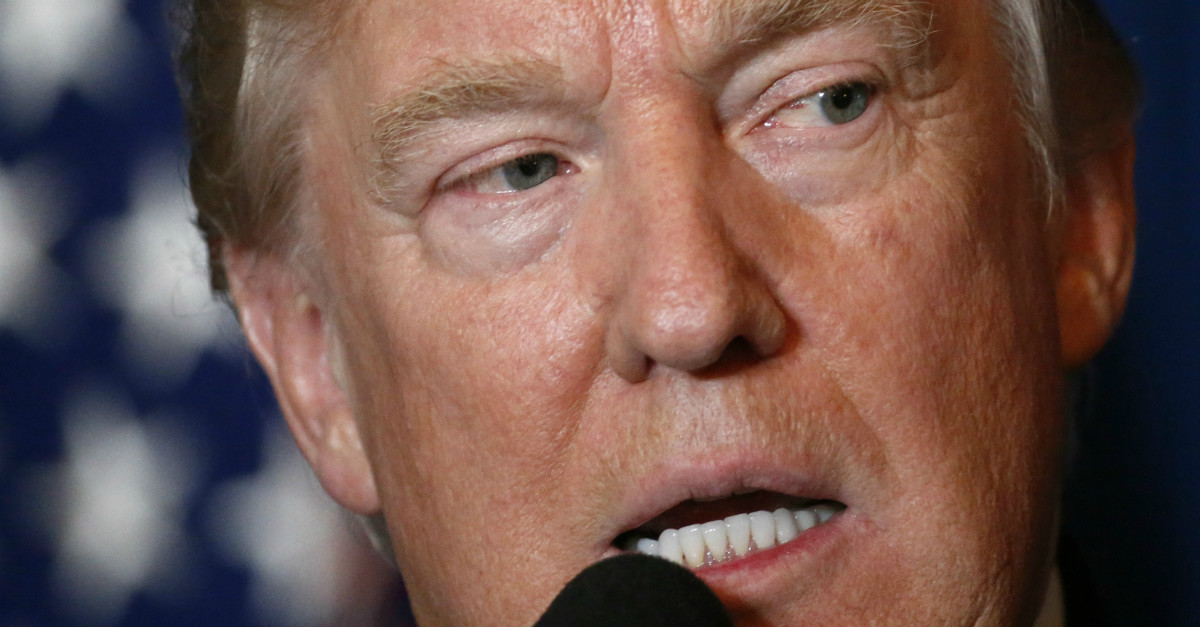President Trump made a mistake Thursday when he launched U.S. airstrikes against Syria in retaliation for the chemical attacks reportedly carried out by that country’s president, Bashar al-Assad.
Videos by Rare
It was a mistake because of what might come next.
Not that the Assad regime didn’t deserve to be targeted. Assad is a brutal dictator with a long history of terrorizing innocent civilians in addition to other human rights violations.
These abuses are why President Obama wanted airstrikes on Syria. They are why Hillary Clinton wanted U.S. action too, on the same day Trump ordered the bombings.
RELATED: Rand Paul reminds President Trump that he opposed Syria intervention back in 2013
But deserving retribution, for humanitarian or other reasons, doesn’t mean it’s wise to carry out military action. Trump campaigned on this exact notion.
The genocidal Saddam Hussein deserved his fate too, and yet President Trump spent the entire election repeatedly declaring that the Iraq war was a disaster that destabilized the Middle East and weakened America’s national security.
Trump was right. The Iraq invasion played right into the hands of those who attacked America on 9/11 and led to the rise of even worse extremists like ISIS, both unintended consequences that we are still grappling with today.
No one, rightly, had any sympathy for Hussein when the U.S. invaded Iraq in 2003, but there’s so much more to consider when taking military action.
Anticipating Trump’s attack on Syria, The Federalist’s Sean Davis wrote an instructive piece on Thursday titled “So You Want to Go to War in Syria to Depose Assad. Can You Answer These 14 Questions First?”
Davis’ queries are practical ones that too few asked before the Iraq War:
1. What is our national interest in Syria?
2. How will deposing Assad make America safer?
3. What will victory look like?
4. What military resources will be required?
5. How long will “victory” take?
6. What will the cost be, in lives and dollars?
7. What countries will assist us?
8. Will the president seek congressional approval?
9. Is this worth risking a wider conflict with Russia?
10. What would “victory” look like in a conflict with Russia?
11. How should the U.S. react if Assad deploys chemical or other weapons against us?
12. What type of government will replace Assad?
13. Will that government ultimately reject the U.S., similar to what Iraq’s government did in 2009?
14. What lessons did the U.S. learn in Iraq and Libya than can be applied to Syria?
Davis writes, “To avoid what happened in Iraq — a swift initial military victory followed by costly guerrilla warfare, political instability, premature U.S. withdrawal, and eventual political defeat leading to a less stable and more dangerous situation than before we invaded — I desperately want solid, well-researched answers to the following questions about our ultimate goals in Syria, how we as a nation plan to achieve them, and what costs we are ultimately willing to bear.”
“We owe it to the American men and women whose blood was shed in Iraq, and their families, to not repeat the same mistakes we made there in Syria,” Davis added.
These are important considerations, particularly in this moment. They are questions that weren’t adequately asked, much less considered, before the Iraq War. Secretary of State Rex Tillerson has signaled recently that Trump’s new policy toward Syria is now regime change, a significant shift from his prior position.
I distinctly remember Fox News’ Sean Hannity arguing with antiwar Republican presidential candidate Ron Paul during the 2008 presidential campaign that it was a moral imperative for America to invade Iraq to liberate its citizens from Hussein’s “genocide” and “rape rooms.”
RELATED: Sen. Rand Paul condemns U.S. airstrikes on Syria
Hannity had a point about Hussein’s atrocities. No one could deny that the Iraqi dictator was a monster, including Ron Paul.
But Paul insisted there were other things to consider when it comes to war. Most Republicans disagreed at the time.
In 2017, the overwhelming majority of Americans—including the President of the United States—believe that the war launched against Iraq by the U.S. in 2003 was one of the most disastrous foreign policy decisions in history. It was launched, in part, out of humanitarian concerns.
Did President Donald Trump just make the same mistake?



